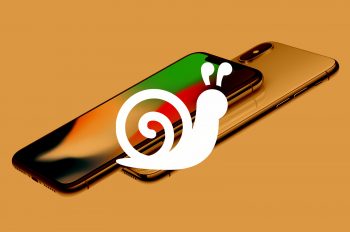
Apple admits what everyone knows: they purposely slow down old iPhones
If you have friends that use the iPhone, you’ve probably heard a common complaint after the latest iOS update rolls out. “My phone is so slow now! Battery life is terrible now!” People assume Apple does this on purpose to make people buy the new models. This has been a widely accepted conspiracy theory for a long time. Apple has finally admitted it’s true.
Apple didn’t admit to slowing down old phones to boost sales (even if that were true, it would come with some legal implications). What they’re actually doing is purposely slowing down old phones to prolong their lifespan. Basically, Apple has an algorithm that “smoothes out” power spikes. They prevent these peaks by putting a cap on the available power from the battery.
iPhone users love to talk about how their phones always get the latest updates while Android devices sometimes don’t. But old iPhones get new iOS updates only by name. The iPhone 6s may get iOS 11, but it doesn’t necessarily have all the features of iOS 11 on the iPhone 8 or iPhone X. And if the update comes with performance limitations, is it really worth it?
Android phones may not always get the latest update, but when they do it doesn’t kill the phone. At least not on purpose. Sometimes an update will have bugs, but that’s different than an update that was specifically designed to limit performance. What are your thoughts on this situation?
[via techcrunch]